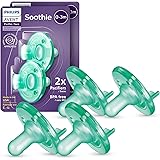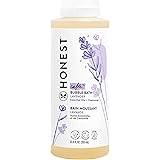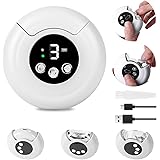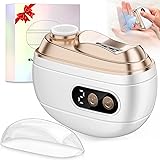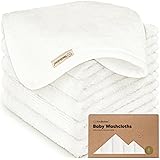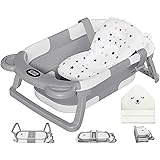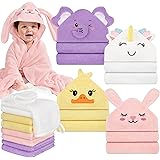As highlighted in the touching video above, the journey of parenthood, especially with a newborn, is filled with profound joy and an equally profound sense of responsibility. From their first coo to their gentle grasp, every interaction with your ‘little angel’ underscores their incredible fragility and absolute dependence on you. This delicate nature extends crucially to their health and hygiene, necessitating a paradigm shift from adult care routines to specialized practices tailored specifically for infants. It becomes abundantly clear that while we might appreciate the efficacy of adult detergents and hygiene products for ourselves, these are unequivocally not designed for the incredibly sensitive ecosystem of a baby’s developing body.
The distinction between adult and infant hygiene products isn’t merely a marketing ploy; it’s a fundamental recognition of physiological differences. A newborn’s skin, for instance, is considerably thinner and more permeable than an adult’s, making it highly susceptible to irritants and significantly less capable of regulating temperature and moisture. This dermal immaturity means that harsh chemicals, strong fragrances, or even certain natural extracts found in adult products can easily disrupt their skin’s nascent barrier function, leading to dryness, rashes, or allergic reactions. Ensuring proper newborn hygiene, therefore, transcends simple cleanliness; it’s about nurturing their health with the utmost care and precision, prioritizing formulations that are both gentle and remarkably effective against potential pathogens.
Understanding the Unique Physiology of Newborn Skin and Its Hygiene Needs
A newborn’s skin is a remarkable organ, yet one that is still very much in development. Unlike adult skin, which has established its robust protective barrier, an infant’s epidermis is thinner, and its acid mantle (the protective layer with a slightly acidic pH) is not yet fully formed. This makes their skin far more permeable, absorbing substances much more readily, whether beneficial or harmful. Consequently, products designed for mature skin, often formulated with strong cleansers, potent fragrances, or harsh preservatives, can easily strip away natural oils, disrupt the delicate pH balance, and trigger adverse reactions in infants. The imperative to choose products with a ‘gentle touch’ is thus a scientific necessity, not just a preference, safeguarding the infant’s vulnerable dermal integrity.
Why Specialized Products are Non-Negotiable for Baby Hygiene
Firstly, the chemical composition of adult products often includes ingredients that, while safe for grown-ups, are too aggressive for babies. Consider the common surfactants in adult soaps and detergents; these powerful cleansing agents can easily remove the limited natural oils present on an infant’s skin, leading to extreme dryness and irritation. Imagine if your own skin, already accustomed to a strong barrier, was suddenly exposed to such stripping agents repeatedly; for a baby, this effect is significantly magnified. Specialized baby products are typically hypoallergenic, pH-balanced, and free from common irritants like dyes, parabens, phthalates, and harsh sulfates, all meticulously formulated to minimize the risk of sensitization and maintain the integrity of their delicate skin barrier.
Secondly, the focus on being ‘tough on germs’ in baby hygiene must not compromise gentleness. While preventing infections is paramount, especially for a developing immune system, this cannot come at the cost of skin irritation. Products formulated for babies achieve germ protection through mild, yet effective, cleansing agents that physically remove bacteria and viruses, rather than relying on harsh chemical disinfectants. Many baby washes and shampoos are ‘tear-free,’ signifying their mildness and indicating they are unlikely to cause irritation even if they accidentally get into a baby’s eyes. This careful balance ensures thorough cleanliness without provoking any discomfort or harm to the infant’s sensitive areas.
Essential Pillars of Comprehensive Newborn Hygiene
Effective newborn hygiene extends beyond just choosing the right products; it encompasses a holistic approach to their daily care. Establishing a consistent routine using appropriate techniques and specialized baby care products is fundamental to protecting their health and fostering their comfort. This careful attention to detail helps create a safe and nurturing environment, crucial for their early development. Here are the key areas where meticulous hygiene makes a significant difference:
1. Gentle Bathing Practices for Delicate Skin
The thought of bathing a tiny newborn can feel daunting, but it’s a crucial part of their hygiene routine. Initially, sponge baths are often recommended until the umbilical cord stump falls off and the area is fully healed. When transitioning to full baths, it’s vital to use lukewarm water – test it with your elbow, not your hand, to ensure it’s comfortable for the baby. Always use a mild, pH-balanced baby wash and shampoo, specifically designed for infants. These products typically contain gentle cleansers that won’t strip the skin of its natural moisture or irritate their delicate scalp. For instance, Morisons Baby Dreams, like other reputable brands, offers products engineered to maintain the skin’s natural balance while effectively cleansing. Limit bath time to 5-10 minutes to prevent dryness, and gently pat dry, paying special attention to skin folds, before moisturizing.
2. Diligent Diaper Care and Addressing Diaper Rash
Diaper changes are arguably the most frequent hygiene task for new parents, and getting it right is critical for preventing discomfort and infection. Change wet or soiled diapers promptly to minimize skin exposure to moisture and irritants. Use soft, unscented baby wipes, or even cotton wool with warm water, to gently clean the diaper area. Always wipe from front to back to prevent the spread of bacteria. After cleaning, allow the area to air dry for a moment before applying a thin layer of a zinc oxide-based diaper rash cream or barrier cream. This creates a protective shield against moisture and friction. The constant vigilance in diaper care helps maintain the integrity of the baby’s vulnerable skin in an area prone to irritation, ensuring comfort and preventing painful rashes that can quickly develop if not managed effectively.
3. Umbilical Cord Care and Healing
The umbilical cord stump is a direct pathway to the baby’s internal system before it fully heals, making its care paramount. Keep the area clean and dry. Many pediatricians now recommend simply leaving the stump exposed to air, folding the diaper below it to prevent friction and allow for proper air circulation, which aids in drying and detachment. Avoid applying any antiseptics unless specifically instructed by your pediatrician, as sometimes less intervention is best. Watch for any signs of infection such as redness, swelling, pus, or a foul odor, and report these immediately to your healthcare provider. This meticulous approach ensures the cord falls off naturally and safely, usually within 1-3 weeks, without complications.
4. Nail Care: Preventing Scratches and Germ Accumulation
Newborns have surprisingly sharp nails that can easily scratch their delicate skin, or even their eyes, during their involuntary movements. Regular nail care is essential, but it requires precision and patience. Using baby-specific nail clippers with rounded edges or a soft emery board is recommended. The best time to trim their nails is often when they are asleep or very calm, as this minimizes sudden movements. Alternatively, some parents prefer to use soft baby mittens to cover their hands, especially during sleep, to prevent accidental scratches. Keeping nails short and clean also minimizes the accumulation of dirt and germs, further contributing to overall infant hygiene.
5. Laundry Care for Baby’s Clothes and Linens
What touches your baby’s skin directly for extended periods, such as their clothing, bedding, and even your own clothes when holding them, must also meet stringent hygiene standards. Adult detergents often contain strong enzymes, brighteners, fragrances, and dyes that can irritate an infant’s sensitive skin, even after rinsing. Therefore, it is crucial to use baby-specific detergents that are hypoallergenic, free of perfumes and dyes, and formulated for sensitive skin. These specialized detergents effectively clean baby clothes without leaving behind harsh residues. Imagine if your little one’s delicate epidermis was constantly exposed to residual irritants from improperly washed fabrics; this would invariably lead to uncomfortable skin conditions. Washing new baby clothes before first use is also a good practice to remove any manufacturing residues.
6. Sterilization of Feeding Equipment and Toys
For bottle-fed babies, strict sterilization of bottles, nipples, and other feeding equipment is non-negotiable, particularly in the early months when their immune systems are most vulnerable. Boiling, steam sterilizers, or cold-water sterilization solutions are effective methods to eliminate harmful bacteria and viruses. Similarly, pacifiers and teething toys, which frequently go into a baby’s mouth, should be cleaned and sterilized regularly. Even toys that don’t go directly into the mouth, but are frequently handled, should be wiped down with baby-safe cleaning solutions or washed periodically. This diligent attention to sterilizing equipment and cleaning toys significantly reduces the risk of gastrointestinal infections and other illnesses, providing an essential layer of germ protection for your developing infant.
Choosing the Right Tools for Superior Baby Care
The market is replete with baby products, but discerning parents understand that not all are created equal. When selecting items for your newborn’s hygiene routine, look beyond attractive packaging and focus on core attributes that genuinely prioritize safety and efficacy. Opt for brands that are transparent about their ingredients and ideally offer pediatrician-recommended or dermatologically tested products. These certifications provide an extra layer of assurance that the formulations have undergone rigorous evaluation for safety and gentleness on infant skin. Furthermore, understanding ingredient lists can empower you to make informed decisions; always steer clear of parabens, phthalates, sulfates, and artificial dyes, which are known irritants for sensitive skin.
The initial video insight from Morisons Baby Dreams resonates deeply because it underscores a universal truth for new parents: ‘little angels need that little extra.’ This ‘extra’ is not about extravagance, but about the critical application of specialized knowledge and products to meet the unique physiological needs of newborns. From gentle bathing to meticulous diapering, and from safe laundry practices to diligent sterilization, every aspect of baby hygiene contributes to their overall well-being. By integrating these expert-level practices into your daily routine, you provide your newborn with the robust foundation of health and comfort they deserve, safeguarding their delicate beginnings with utmost care and confidence.


